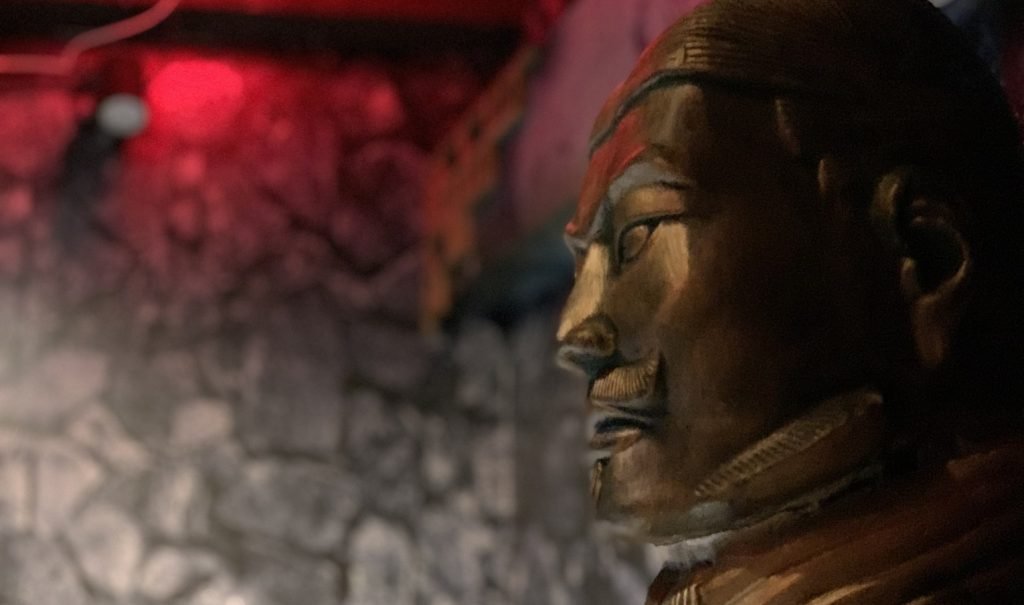What Makes a Good Leader?
People often associate leaders with characteristics such as being intelligent, understanding tasks, being proactive, caring, loving, persistent, confident, responsible, and ultimately promoting the team to achieve goals. In a room escape game, a group of people will often discover a lot of people with leadership potential. As long as you pay close attention, you will find that everyone who participates will have certain leadership characteristics. For example, There was a story about an Italian missionary who created bronze statues based on the Chinese zodiac signs. It was said that Castiglione designed the 12 zodiac statues for the Qianlong Emperor and throughout time, these statues went missing. Now all the participants are going to enter the castle in order to look for clues and solve the mystery of the room. Some will know that the first thing to do is to “understand the task”, which is, to find those bronze statues that are missing. After entering the room, the participants will usually be “proactive” to observe and feel around, and maybe they’ll find some insignificant clues. It may not be able to solve the puzzle in time, but you must make good use of the information between teammates and continue to “persist”. This may cause some people to lack “confidence”, so they may easily give up the puzzle and seek help from the staff, but if, some of your teammates are “caring and loving” and will try to encourage everyone.

The Importance of Frustration
In Chinese there’s a saying, “Don’t tell me how big your problem is, just tell your problem how good your ability is!”. Time passes minute by minute, but regardless of whether you have successfully escaped or not, everyone should still take “responsibility” for the outcome no matter if it’s a good or frustrating one. It’s important to turn grief and indignation into strength, and to understand more clearly the strengths and weaknesses of your team, so you can improve the cooperation and productivity between the teams. Therefore, in an escape game, it is often not as simple as just the game. Every detail, every level, every puzzle, and the cooperation between each team member will have different meanings and effects. Learning from mistakes and frustration is very important and sometimes even more effective than just constantly winning because people usually remember their failures the most.
For more tips on Team Building, please see the “HR’s Ultimate Team Building Cheat Sheet!”

密室中的領袖
人人都可以是領袖
作為一個領袖人物通常有其特質,例如:充滿智慧、了解任務、善於主動、關懷有愛、堅持不懈、擁有自信、承擔責任,最後促進團隊達成目標。
一群人在一個密室逃脫遊戲當中往往會發掘出很多有領袖潛能的人,只要你細心留意就會發覺每一位參與遊戲的人都會存在某些特質是有領袖的元素。舉個例子,相信大家都聽過十二生肖銅像的故事,話說當年一位意大利傳教士伽斯底里奧內為乾隆皇帝設計出十二生肖銅像以作報時之用,至今有好些銅像仍然下落不明。現在,各位隊員就是要進入古堡之內,在這個密室空間尋找線索、破解謎題。遊戲開始時,一些人就知道先要「了解任務」,就是要找出那些不翼而飛的銅像;進入房間之後,通常參與者都會「善於主動」四周觀察一下,捉摸一下,尋找當中或許找到一些不明顯的線索,由於未必能即時解開謎題,你要善用隊友之間的「智慧」,繼續「堅持不懈」,這一點可能有些人會缺乏「自信」,所以可能輕易放棄解謎直接尋求店員協助,不過若然你隊友當中一些「關懷有愛」,會盡量鼓勵大家。

挫敗感的重要性
「不要告訴我你的問題有多大,只要向問題說你的能力有多大!」振奮人心由此而來,時間一分一秒的過去,姑勿論成功逃脫與否大家仍然願意「承擔責任」,就是要面對那種挫敗感,如何把悲憤變成力量,更加清楚明白自己團隊當中的長與短,這樣更加可以提高團隊之間的合作及生產力。所以說在一個密室逃脫遊戲當中,往往並不是遊戲那麼簡單,每一個細節、每一個情節、每一個關卡、每一個謎題、每一個隊員之間的合作都會有不同的火花,領袖除了是發掘出來還有是培育出來。飛機也是在逆風當中才能起飛,正正就是密室逃脫種種難題難關需要你的小宇宙一起破解,取得成功!
如欲了解更多有Team Building 的技巧,可瀏覽「人力資源管理(HR)必看天書」。


